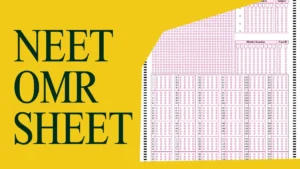Table of Contents
Career in Music- Convert Your Love For Music Into A Flourishing Career
The widespread use of music in today’s brands/ad films, testimonial videos, music festivals, etc. makes sound engineering a promising professional path!
“Sound Engineering” may be the ideal career choice for you if you love music and are fascinated by the world of beautiful instruments, how sound is produced, and how technology may help create the best version of the musical recording. A sound engineer might choose from a variety of careers. You can work in a variety of movies, music events, rock shows, or even start your own business. You can delve further and discover your true calling by doing a little research in this subject.
You might begin by considering the main stage artists while considering a profession in music. However, if you go behind the scenes, you’ll discover individuals who work in the music industry in a variety of capacities to support performances. There are those who plan and advertise the music, those who work on the soundboard and in the recording studios to ensure the musical performance sounds great, those who write the music and arrange it, and many more.
A career in music might encompass one or more disciplines; it goes beyond simple performance. You will have more options to work in the music industry the more adaptable you are.
The music industry is more difficult to break into than other sectors. Here are some occupations in the music industry you might want to think about, along with the salaries you might anticipate from them, despite the fact that competition is fierce.
Music Into A Flourishing Career
1. Music Producer
Do you want to master all trades? A music producer establishes connections with musicians and the record label and has a thorough understanding of both the artistic and business aspects of the industry. A producer should foster an atmosphere that encourages artistic expression and creation. A producer helps an artist record their work by handling many of the technicalities, such as selecting the material to record, coordinating with the engineer, modifying arrangements, keeping the recording budget in check, and influencing mixes.
What to Learn: If you want to work as a music producer, start by learning about the basic ideas in audio and music. Then move on to learning about different kinds of software. You need to become proficient in engineering and mixing if you want to become a truly exceptional producer. Who created your favourite albums, according to the credits? Who planned them out? Discover the various albums these individuals have released to become more familiar with their style. Read interviews to learn more about these people’s approaches. There is no one way to succeed in this situation, but as you acquire the appropriate skill set, you can plough your own route.
2. Recording Engineer
It is the job of an audio engineer to record sound and edit it in the studio. You’ll work with analogue and digital audio, compressors, microphones, and signal flow; to record music, you’ll often combine both conventional and cutting-edge recording approaches. Additionally, you can be in charge of planning recording sessions and fixing any technological issues that develop. And occasionally, if something goes wrong while recording that magical take, you can suffer the brunt of the producer or musicians’ ire!
What to Learn: Master various recording technologies and hone your file management abilities. Additional training in mixing and editing may be necessary for some sound engineering positions. You’ll also need to have problem-solving skills, the ability to lead recording sessions, and initiative.
3. Session Musician
As a session musician, you either support and perform on the album of another musician or share the stage with numerous acts. This implies that you are allowed to experiment with various styles, genres, and sounds. A tonne of other musicians will engage with you, meet you, and help you build partnerships. You might be asked to participate in a recording session or go on tour with a band. The road to becoming a successful session musician can be enjoyable and perhaps lead to a solo career if you are exceptionally skilled at your instrument.
What to Learn: A seasoned session musician has a strong reputation for being a master of their instrument. You should be skilled and experienced at improvisation in addition to being able to enter any musical arrangement and contribute your expertise. Learning how to create a trustworthy network and strong relationships is also essential. Excellent communication skills and general knowledge of the industry are also desirable.
4. Artist Manager
An artist manager’s job is to forge connections, open doors, and advance the musical act in the music industry. You must have complete faith in your artist and support them in developing a solid and long-lasting career by organising, managing, leading, and negotiating. You’ll have to put in just as much—if not more—work, even though you might not receive all of the praise and admiration that the artist does.
What to Learn: Leadership and management abilities are crucial in this situation. Along with streamlining and arranging the many moving pieces that exist between musicians, publishers, and booking agencies, your job will also require you to make sales calls, negotiate contracts, and offer helpful critique.
5. Tour Manager
As a tour manager, you will be engaged with every aspect of a band’s touring career. You are involved in every aspect of travel and lodging as the tour’s financial, scheduling, and behind-the-scenes brain. You’ll make sure that everyone’s needs are met. You’ll need to be self-driven and willing to assume the band’s responsibilities, notably its financial responsibilities.
What to Learn: You’ll need to know your business inside and out. You can enrol in music business management courses, but you should also study tour logistics, accounting fundamentals, and daily schedule management on your own. Gain knowledge of the various aspects of the live music business and develop your ability to foresee demands and meet them while maintaining a timetable.
6. Music Teacher
There are many different ways to teach. You could work as a private instructor, a music store employee, or a school teacher. You might instruct in theory or a particular instrument. Additionally, you’ll be free to select the age range of students you want to instruct; each has pros and disadvantages of its own. A profession teaching music can be ideal for you if you enjoy inspiring others, imparting knowledge, and treating patients.
What to Learn: Depending on the teaching career you are most interested in, you will need a certain level of education and experience. For instance, becoming a teacher at a school will probably require more certifications than becoming self-employed. It goes without saying that you must be an expert in the subject you are teaching and comfortable providing classes.
7. Booking Agent
It’s your responsibility to bring the band onstage. A large portion of the logistics of live performances are facilitated by booking agencies, including procuring concert venues, striking deals, setting up technical equipment, and planning hospitality. To plan an artist’s tour, you’ll collaborate closely with management (of the performers and the venues) and event producers.
What to Learn: A degree in marketing, accountancy, or music management would be helpful in preparing you for a career as a booking agent. You should study sales, marketing, copyright law, contract negotiation, and event planning. Start working in administrative and event promotion positions to gain an understanding of the fundamentals of show booking.
8. Music Publicist
A music publicist maintains close relationships with venues, marketers, and media sources. Publicists make sure that media coverage of their clients’ concerts, releases, and announcements contributes favourably to the musicians’ public image and raises public awareness of the artist. The good thing is that you’ll be able to clearly see the results of your efforts, whether it’s a show that sells out or radio exposure. In a media environment when staff is being cut back on and outlets that cover music are being eliminated, it can be difficult to get noticed by journalists. This position entails more than just public relations; it also entails pitching a story, creating a network, managing a reputation, and remaining competitive.
What to Learn: Start with that since this is a communications and marketing-based position. Learn the fundamentals of public relations strategy and hone your interpersonal abilities. You’ll need to network, be persistent in your outreach efforts, and ask the proper questions if you want to become a publicist. Equip yourself with writing, crisis communication, and publicity campaign building skills in addition to on-the-ground expertise.
9. Composer
Composers can write for movies, television, and video games in addition to the classical music field. They are able to compose and arrange music for both recorded and live performances. Regardless of the path you choose, you need to have a thorough understanding of music theory, be able to play one or more instruments well, and possess the technical know-how necessary to efficiently record your works, whether through music notation or recording..
What to Learn: The elements to success in this field are formal education and experience. Composers are skilled musicians who have a thorough knowledge of music theory and arranging. A great composer must have a deep understanding of the principles and practises of music. Start experimenting with composing software and learning it. Event components of sound engineering, like as notation software and recording systems, can be useful.
10. Music Arranger
A piece of written music must be taken and reorganised by a music arranger in order to attain a new tone or objective. A client can want you to change the key, reduce or lengthen a composition, or add a Latin beat to a pop song. Because it requires a specialised skill set, arranging might lead to employment as a freelancer, with a band, or with a music organisation.
Top-ranked Music Colleges of India
- Saraswati Music College, New Delhi
- Delhi School of Music
- Calcutta School of Music
- Swarnabhoomi Academy of Music, Chennai
- College of Music and Dance, Hyderabad
- KM Music Conservatory, Chennai (established by the A.R. Rehman Foundation)
- Government Music College, Indore
- Madras Music Academy
- Madhav Music College, Gwalior
- The True School of Music, Mumbai
- Shankar Mahadevan Academy
- Government Music College, Chennai
- Saradha Sangeetha Kalasala, Guntur
- Government school of music and dance, Guntur
Courses in Music
A candidate can do the following courses in Music:
- Certificate courses in Music
- Diploma in Music
- B.A (Music)
- B.F.A (Music)
- B.P.A (Music)
- Higher degree courses – Master’s in Music, M.Phil (Music), PhD in Music
A student can select his/her music training in Vocal or Instruments. Depending upon the interest, a candidate can opt for any of the two. It is important that music learner does a lot of practice. Without ample practice, one cannot perfect his/her skills in music. And in order to get a proper platform in a music career, one should have excellent skills.
Career and Job Opportunities for Musicians
A student who successfully completes the music course may find employment in the film, television, production, and music industries. In universities and colleges, one can also find employment as a music educator. The business-minded students might even start their own music education facilities. Particularly the Bollywood and TV series have given musicians new opportunities. In these regions, finding employment is simple.
Salary as Musician
A music instructor can expect to make between 10,000 and 20,000 as their first year’s wage. However, it will rise in a few years. A gifted musician might make a good living performing on stages, providing music for weddings, joining musical ensembles, or taking on projects from record labels.
Career In Music 2022 Eligibility
After Class 12, a candidate may choose to enrol in a music course. He or she can enrol in any music school or college to obtain a bachelor’s degree in music.
Along with a degree, applicants must be passionate about music and have a keen interest in the topic. A career can be developed with the aid of creative aptitude and a sense of rhythm.
Career In Music 2022 Other Details
Best Music Schools in the World
If you are interested in learning Music from international schools, here is the list of best ones to pick from:
- Berklee College of Music, Boston
- The Juilliard School, New York
- New England Conservatory of Music, Boston
- Yale School of Music, New Haven
- Curtis Institute of Music, Philadelphia
- Royal College of Music, London
- The Royal Academy of Music, London
- Mannes School of Music, New York
- Indiana University – The Jacobs School of Music, Bloomington
- University of Southern California Thornton School of Music, Los Angeles



 MH CET Law Admit Card 2025 Out, Download...
MH CET Law Admit Card 2025 Out, Download...
 NEET OMR Sheet 2025, Common Mistakes to ...
NEET OMR Sheet 2025, Common Mistakes to ...
 CUET UG Date Sheet 2025 @cuet.nta.nic.in...
CUET UG Date Sheet 2025 @cuet.nta.nic.in...










